The AMD Ryzen Threadripper 1950X and 1920X Review: CPUs on Steroids
by Ian Cutress on August 10, 2017 9:00 AM ESTAshes of the Singularity Escalation
Seen as the holy child of DirectX12, Ashes of the Singularity (AoTS, or just Ashes) has been the first title to actively go explore as many of DirectX12s features as it possibly can. Stardock, the developer behind the Nitrous engine which powers the game, has ensured that the real-time strategy title takes advantage of multiple cores and multiple graphics cards, in as many configurations as possible.
As a real-time strategy title, Ashes is all about responsiveness during both wide open shots but also concentrated battles. With DirectX12 at the helm, the ability to implement more draw calls per second allows the engine to work with substantial unit depth and effects that other RTS titles had to rely on combined draw calls to achieve, making some combined unit structures ultimately very rigid.
Stardock clearly understand the importance of an in-game benchmark, ensuring that such a tool was available and capable from day one, especially with all the additional DX12 features used and being able to characterize how they affected the title for the developer was important. The in-game benchmark performs a four minute fixed seed battle environment with a variety of shots, and outputs a vast amount of data to analyze.
For our benchmark, we run a fixed v2.11 version of the game due to some peculiarities of the splash screen added after the merger with the standalone Escalation expansion, and have an automated tool to call the benchmark on the command line. (Prior to v2.11, the benchmark also supported 8K/16K testing, however v2.11 has odd behavior which nukes this.)
At both 1920x1080 and 4K resolutions, we run the same settings. Ashes has dropdown options for MSAA, Light Quality, Object Quality, Shading Samples, Shadow Quality, Textures, and separate options for the terrain. There are several presents, from Very Low to Extreme: we run our benchmarks at Extreme settings, and take the frame-time output for our average, percentile, and time under analysis.
All of our benchmark results can also be found in our benchmark engine, Bench.
MSI GTX 1080 Gaming 8G Performance
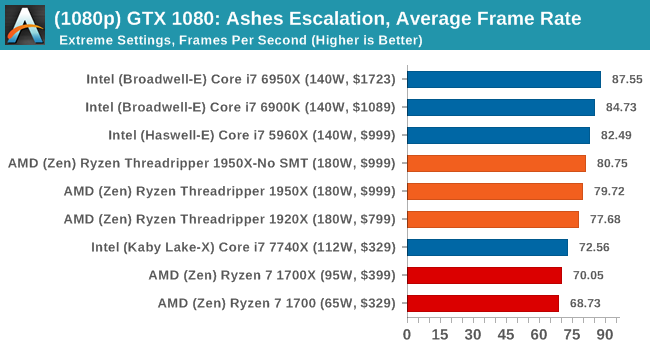
1080p

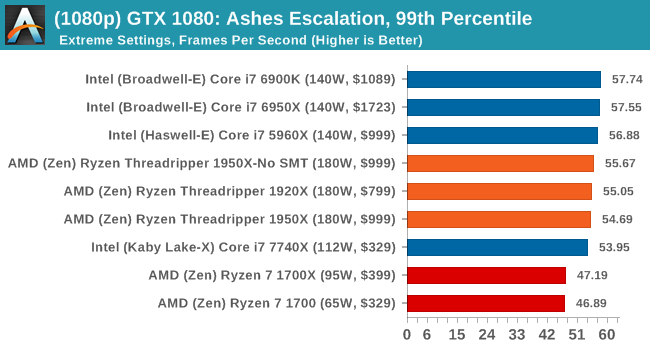
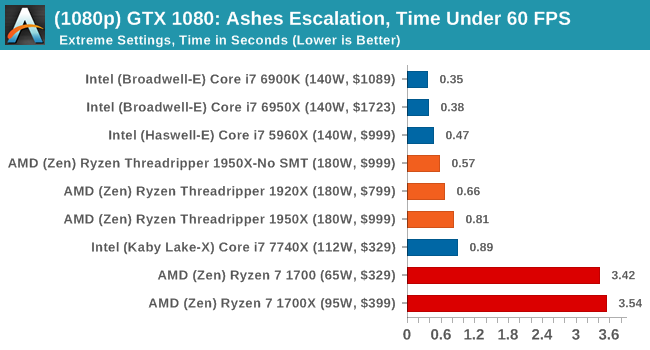
4K
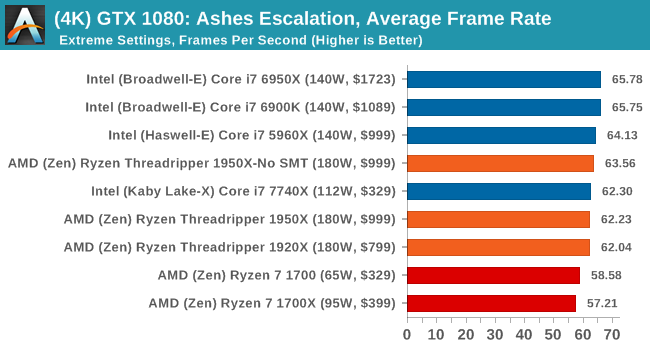
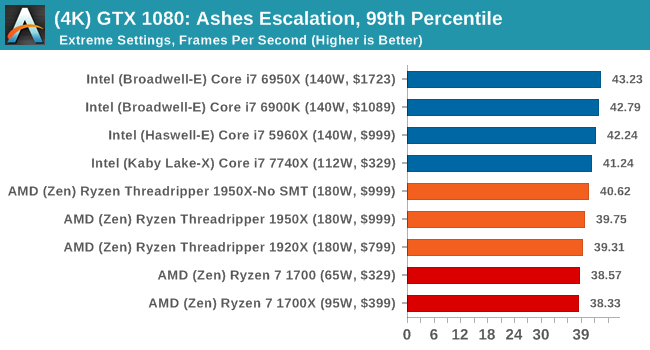

ASUS GTX 1060 Strix 6G Performance
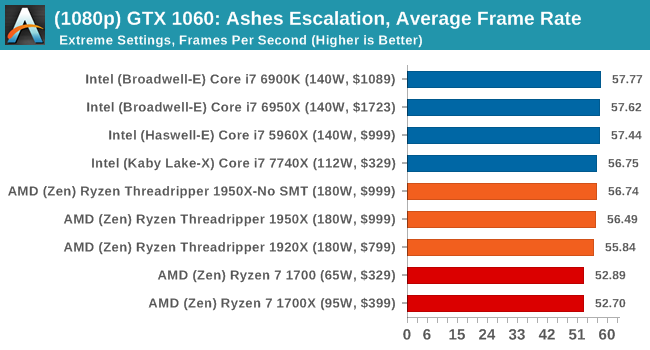
1080p

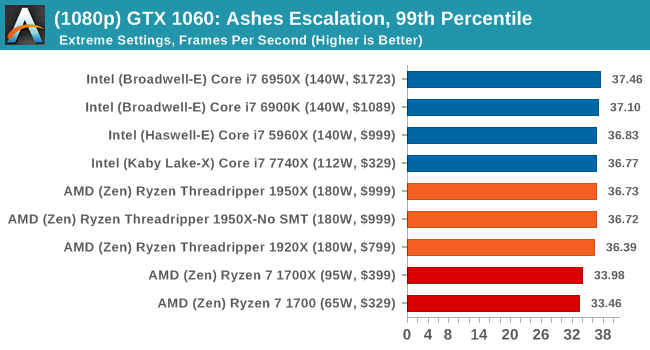
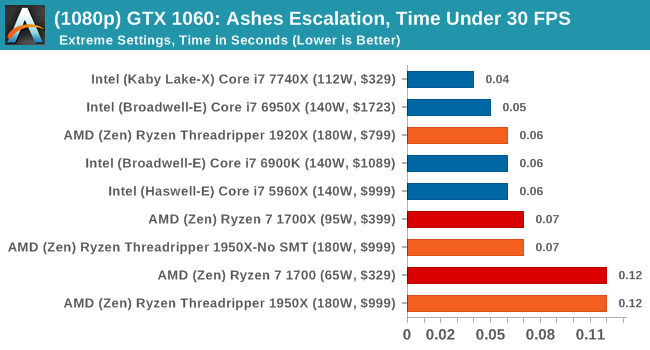
4K
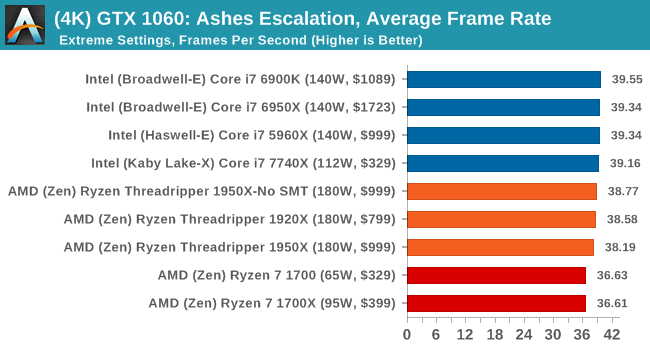
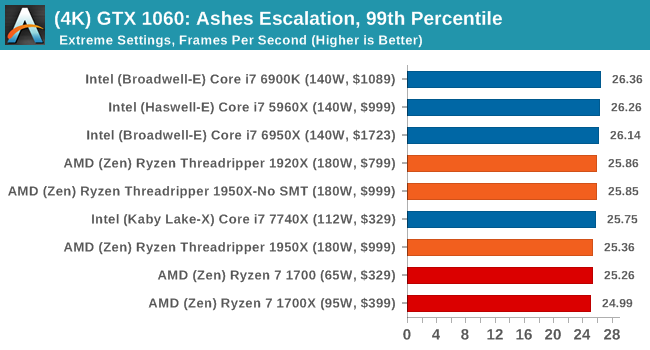
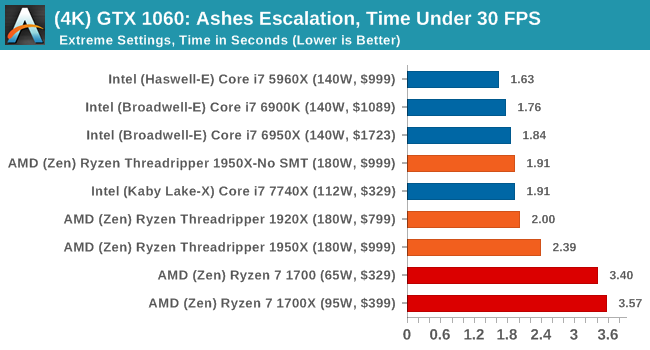
Sapphire Nitro R9 Fury 4G Performance
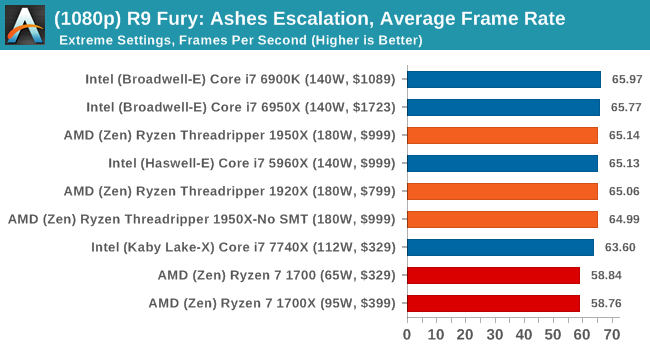
1080p

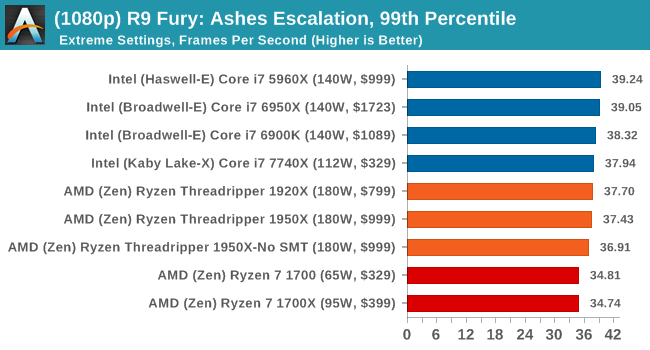
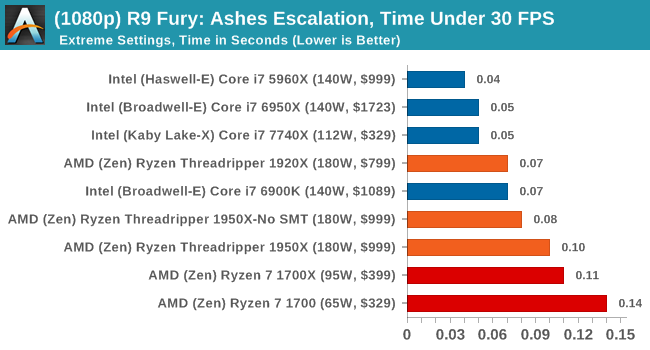
4K
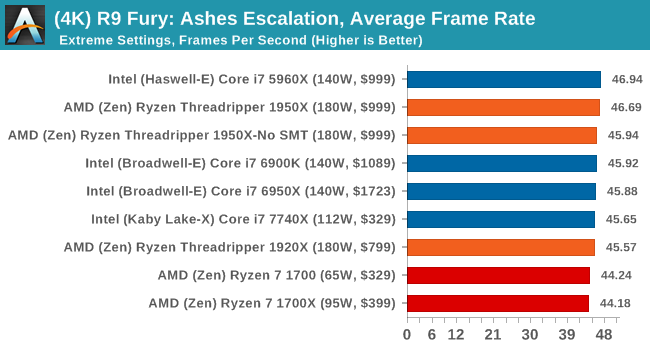
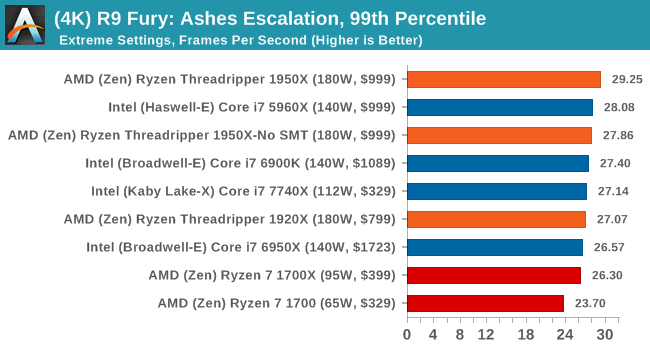
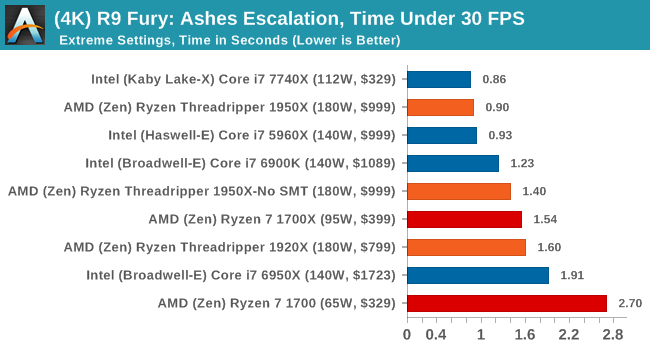
Sapphire Nitro RX 480 8G Performance
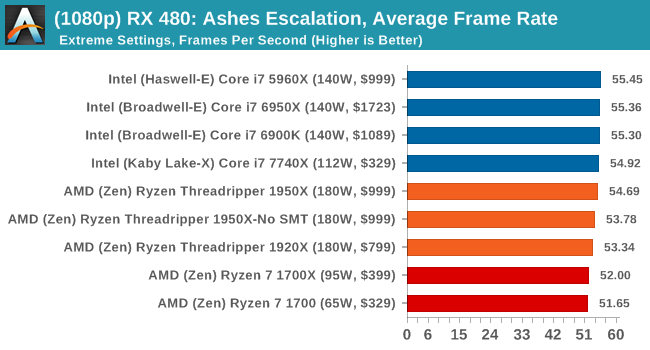
1080p

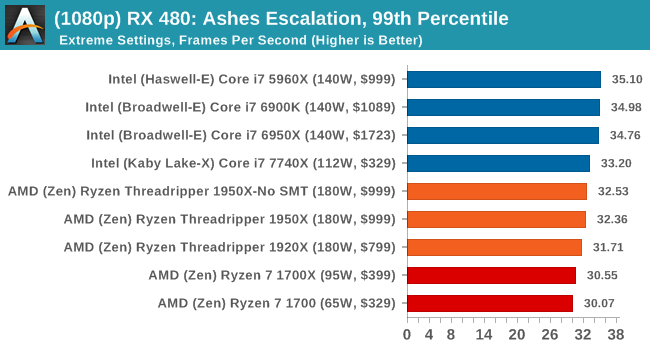
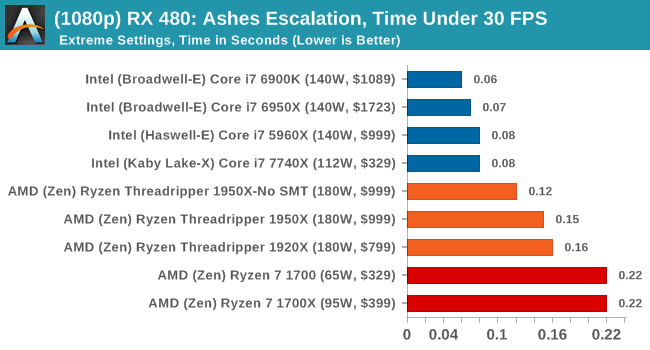
4K
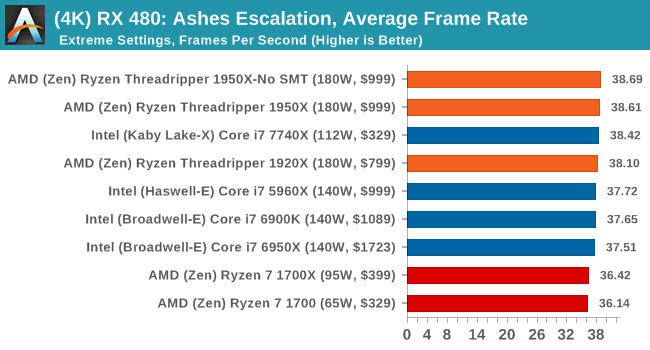
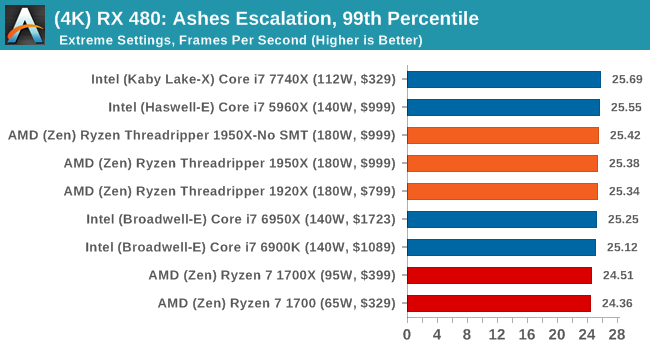
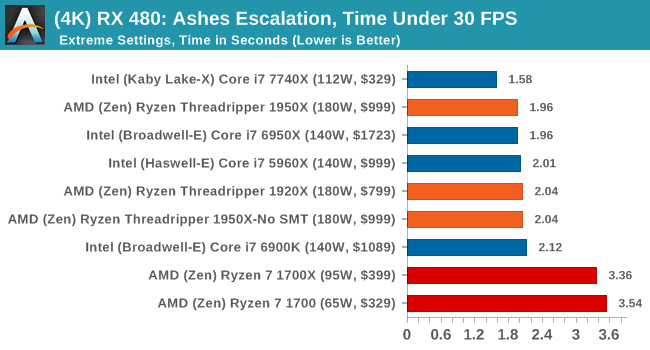
AMD gets in the mix a lot with these tests, and in a number of cases pulls ahead of the Ryzen chips in the Time Under analysis.


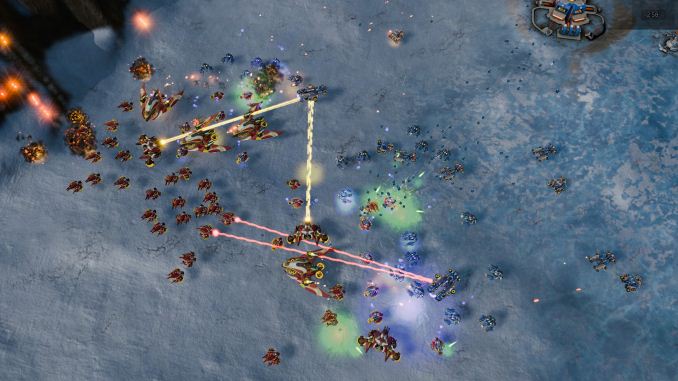
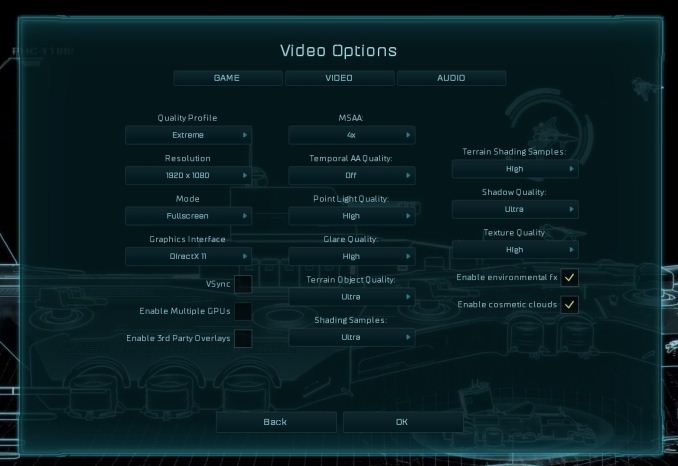








347 Comments
View All Comments
verl - Thursday, August 10, 2017 - link
"well above the Ryzen CPUs, and batching the 10C/8C parts from Broadwell-E and Haswell-E respectively"??? From the Power Consumption page.
bongey - Thursday, August 10, 2017 - link
Yep if you use AVX-512 it will down clock to 1.8Ghz and draw 400w just for the CPU alone and 600w from the wall. See der8auer's video title "The X299 VRM Disaster (en)", all x299 motherboards VRMs can be ran into thermal shutdown under avx 512 loads, with just a small overclock, not to mention avx512 crazy power consumption. That is why AMD didn't put avx 512 in Zen, it is power consumption monster.TidalWaveOne - Thursday, August 10, 2017 - link
Glad I went with the 7820X for software development (compiling).raddude9 - Thursday, August 10, 2017 - link
In ars' review they have TR-1950X ahead of the i9-7900X for compilation:https://arstechnica.co.uk/gadgets/2017/08/amd-thre...
In short it's very difficult to test compilation, every project you build has different properties.
emn13 - Thursday, August 10, 2017 - link
Yeah, the discrepency is huge - converted to anandtech's compile's per day the arstechnica benchmark maxes out at a little less than 20, which is a far cry from the we see here.Clearly, the details of the compiler, settings and codebase (and perhaps other things!) matter hugely.
That's unfortunate, because compilation is annoyingly slow, and it would be a boon to know what to buy to ameliorate that.
prisonerX - Thursday, August 10, 2017 - link
This is very compiler dependent. My compiler is blazingly fast on my wimpy hardware becuase it's blazingly clever. Most compilers seem to crawl no matter what they run on.bongey - Thursday, August 10, 2017 - link
Looks like anandtech's benchmark for compiling is bunk, it's just way off from all the other benchmarks out there. Not only that, no other test shows a 20% improvement over the 6950x which is also a 10 core/20 thread cpu. Something tells me the 7900x is completely wrong or has something faster like a different pcie ssd.Chad - Thursday, August 10, 2017 - link
All I know is, for those of us running Plex, SABnzbd, Sonarr, Radarr servers simultaneously (and others), while encoding and gaming all simultaneously, our day has arrived!:)
Ian Cutress - Thursday, August 10, 2017 - link
We checked with Ars as to their method.We use a fixed late March build around v56 under MSVC
Ars use a fixed newer build around v62 via clang-cl using VC++ linking
Same software, different compilers, different methods. Our results are faster than Ars, although Ars' results seem to scale better.
ddriver - Friday, August 11, 2017 - link
Of every review out there, only your "superior testing methodology" presents a picture where TR is slower than SX.